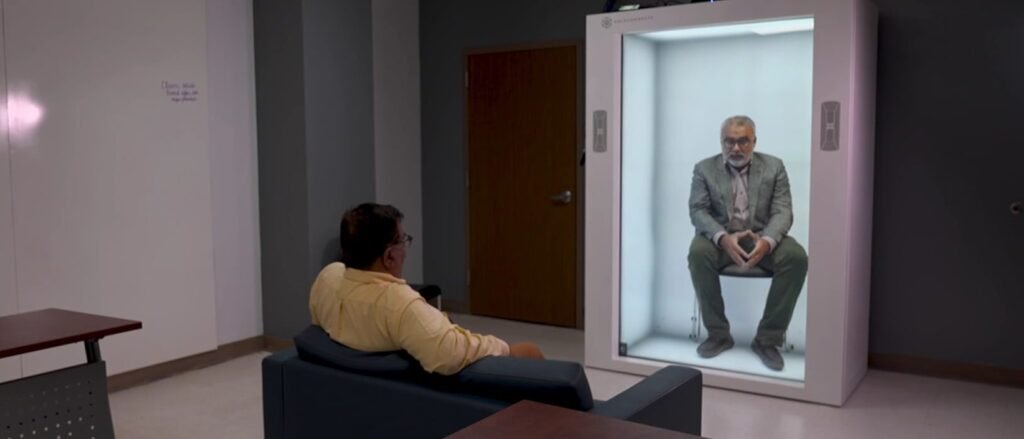A hospital in Texas has introduced the first holographic hospital visit, ABC News reported Wednesday.
Crescent Regional Hospital in Lancaster, Texas, is leading a groundbreaking advancement in medical technology by introducing a system that allows doctors to consult with patients via holograms. according to To ABC News: This innovative approach, powered by the “Holobox” developed by Dutch company Holoconnects, allows doctors to remotely interact with patients through a life-size, real-time holographic display.
Crescent Regional Hospital in Lancaster, Texas, is reportedly the first hospital in the United States to implement a hologram system as part of doctor-patient consultations. https://t.co/RoNp4Z4WVs
— ABC 7 Chicago (@ABC7Chicago) June 26, 2024
The 86-inch Holobox requires only electricity and the internet to run. According to the media, it comes equipped with anti-reflective glass, a transparent LCD screen for lifelike viewing, Hi-Fi speakers, and a multi-touch operating system. The device can project live real-time video and pre-recorded messages, enabling immersive interactions between medical professionals and patients.
Raj Kumar, CEO, Crescent Regional Hospital expressed excitement at the introduction of such advanced technology.
“There's artificial intelligence, robotics and a lot more,” Kumar said. Said “We're excited to bring some of this technology to North Texas.” (Related: American doctor trapped in Gaza saves life of U.S. senator serving in the Army)
The system aims not only to make the most of doctors' time, but also to improve patient care by providing access to specialist consultations that may not be available otherwise, especially in remote and underserved areas. Kumar plans to expand the use of holographic consultations across hospitals and even in rural areas by integrating the technology into mobile units, the media reported.
Steve Stirling, managing director of North America for Holoconnects, sees this as a revolutionary step in healthcare.
“It has the potential to revolutionize access and relationships between patients and healthcare professionals,” Sterling told ABC News in an email. “It provides real-time, remote access, allowing patients to receive expert-level care from anywhere in the world and saving physicians their most precious resource – time!”
According to ABC News, this progress could be especially game-changing for areas struggling with doctor shortages and a lack of medical facilities.
















